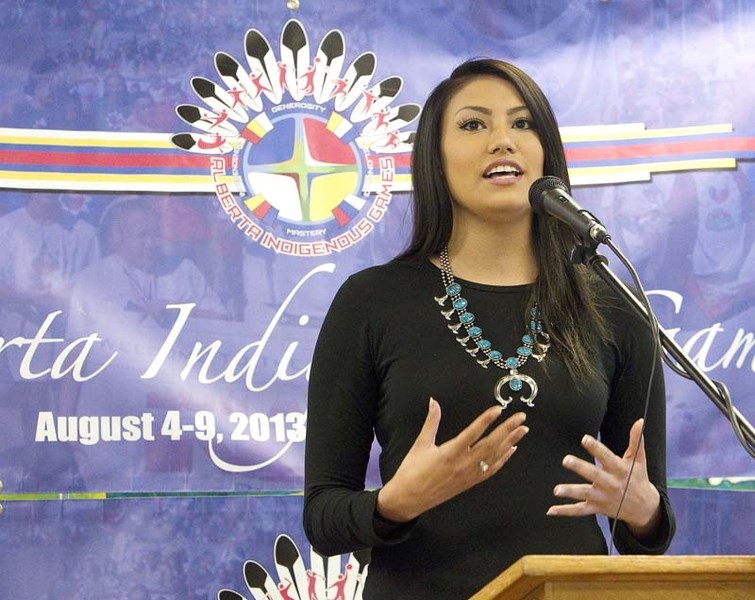More than 1,000 young aboriginal athletes could come to St. Albert this summer as a provincewide athletics competition swings into town.
Event spokesperson Allan Ross kicked off the leadup to the second-ever Alberta Indigenous Games Tuesday at St. Albert Place. The event, founded by Ross in 2010, draws First Nations, Inuit and Métis youths from disadvantaged communities together to compete in 10 different outdoor sports.
Up to 1,400 competitors aged 12 to 18 from across Alberta are expected at the August event, Ross said. Competitors will go head-to-head in events such as archery, ball hockey, lacrosse, basketball and track as they compete for medals and customized prize jackets. Almost all the events will be hosted in St. Albert.
“Almost 100 per cent of aboriginal communities on reserves and Métis communities do not have the sports teams, leagues and infrastructure to support the sports we’re offering,” Ross said. Youths on them face financial and discriminatory barriers when they try to join teams off reserve.
These games, which are held once every two years, are meant to empower youths and give them a chance to take part in team sports, Ross said. “Science has shown that physical activity actually improves the IQ of children,” he said, as well as giving them a natural high.
It also helps kids guard themselves against negative influences such as drugs and alcohol, said Gwen Crouse, the event’s honourary chair. “If you can have an athlete that has a passion for sports, they might not do the drugs, they might not do the drinking, they might not do the glue-sniffing that we hear about.”
Local restaurants and businesses can also expect some spinoff benefits from the 3,000-some guests expected at the games, Ross said. “Tim Hortons will definitely be a popular place.”
Those guests will be in addition to the 700-some people expected at the annual Poundmaker’s Lodge powwow, said board chair Don Langford, which happens immediately before the games. (Poundmaker’s is one of the event’s sponsors and will host the opening ceremonies.)
Sports are a key part of the healing process, Langford said. “Any activity that allows our children to participate in healthy competition in an environment that’s alcohol and drug free is great,” he said, and should help build their self-esteem.
The games won’t have the hard-core competition of the Olympics, Ross reports, but will have some similarities.
They hope to kick the games off with an Olympic-style sacred eagle staff run, for example, with runners arriving at the opening ceremony from the four cardinal directions, each bearing an eagle staff (equivalent to a national flag). The event should also have a sacred fire that will be kept alight for the game’s duration. Musical acts and cultural activities will also be offered at Lions Park.
One item you won’t find at the Olympics is the 16-teepee Elders’ Village. “Many of our youth feel disconnected,” Ross said, and are often cut off from their cultural roots. Participants will be encouraged to take part in free talks provided by elders in the Elders’ Village during the games on concepts such as addiction and healthy relationships.
The games should help showcase St. Albert’s athletic facilities and bring tourists to local stores, Crouse said. She hoped city residents would give the athletes a grand welcome.
The games run from Aug. 4 to 8 in St. Albert, Leduc and Enoch. Registration is $50. Volunteer and sponsorship opportunities are still open.
Details on the games can be found at aig2013.org.




